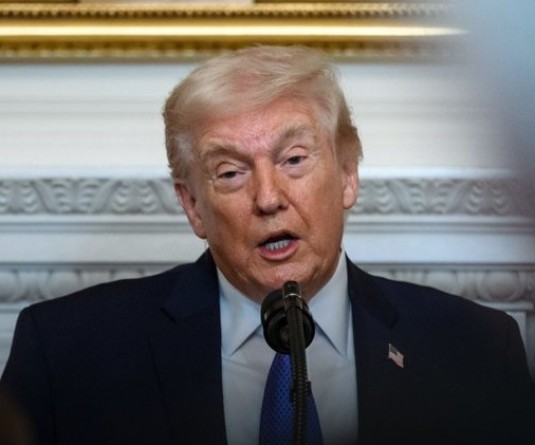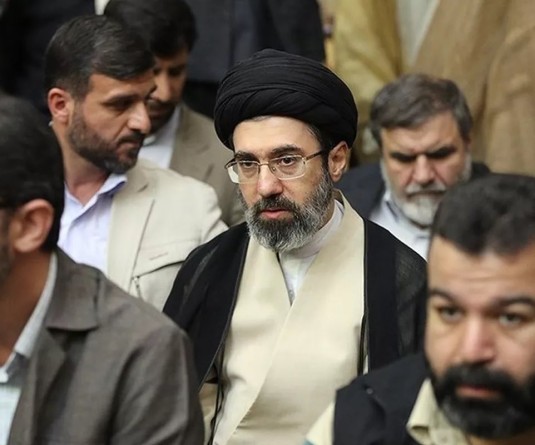
TEHRAN, February 6 (AP): An Iranian court began closed-door proceedings Sunday in the espionage trial of three Americans — two still in custody and one freed on bail — whose detention has been the subject of impassioned family appeals and backdoor outreach by Washington through an Arab ally in the Gulf.
The case also highlights the power of Iran's judiciary, which is controlled directly by the nation's ruling clerics and has rejected apparent efforts by President Mahmoud Ahmadinejad to urge for some leniency. But Ahmadinejad also has tried to draw attention to Iranians in U.S. jails, raising the possibility the detainees were viewed as potential bargaining chips with Washington at a time of high-stakes showdowns over Iran's nuclear program.
Authorities in the Tehran Revolutionary Court imposed a blanket ban on observers, including Swiss Ambassador Livia Leu Agosti who represents U.S. interests in Iran. Details of the initial proceedings were not known, but local journalists reported that the session was under way.
The Americans were detained in July 2009 along the Iraqi border. They claim they were hiking in Iraq's Kurdistan region and — if they crossed into Iran — it was inadvertent. Iran, however, pressed forward with spy charges that could bring a maximum sentence of 10 years in prison if convicted.
In September, Iranian officials released one of the Americans, Sarah Shourd, on $500,000 bail arranged through the Gulf nation of Oman that maintains close ties to the West and Iran.
The two others — Shourd's fiance Shane Bauer and their friend, Josh Fattal — remain in Tehran's Evin Prison. It was not clear whether the two men were in the Revolutionary Court, which deals with state security issues such as those arrested in the violent aftermath of Iran's disputed elections in 2009. Last week, Iran officially demanded that Shourd return for the trial, but she has stayed in the United States.
Shourd and Bauer had been living together in Damascus, Syria, where Bauer was working as a freelance journalist and Shourd as an English teacher. Fattal, an environmental activist, went to visit them last July 2009 shortly before their trip to northern Iraq.
The families of the detainees have made high-profile appeals for their release, including during a visit by the three mothers to Tehran in May. The trip, however, was carefully orchestrated by Iranian authorities and included a meeting between the mothers and relatives of five Iranians held for more than two years by the U.S. military in Iraq. Just days after her release, Shourd met Ahmadinejad while he was in New York to attend the U.N. General Assembly and asked for his intervention to free Bauer and Fattal.
In an interview with The Associated Press at the time, Ahmadinejad noted that while the Americans had broken the law by crossing into Iran, he would ask the judiciary to expedite the process and to "look at the case with maximum leniency." Yet Ahmadinejad also has used the case to draw attention to Iranians held in the United States.
The case also highlights the power of Iran's judiciary, which is controlled directly by the nation's ruling clerics and has rejected apparent efforts by President Mahmoud Ahmadinejad to urge for some leniency. But Ahmadinejad also has tried to draw attention to Iranians in U.S. jails, raising the possibility the detainees were viewed as potential bargaining chips with Washington at a time of high-stakes showdowns over Iran's nuclear program.
Authorities in the Tehran Revolutionary Court imposed a blanket ban on observers, including Swiss Ambassador Livia Leu Agosti who represents U.S. interests in Iran. Details of the initial proceedings were not known, but local journalists reported that the session was under way.
The Americans were detained in July 2009 along the Iraqi border. They claim they were hiking in Iraq's Kurdistan region and — if they crossed into Iran — it was inadvertent. Iran, however, pressed forward with spy charges that could bring a maximum sentence of 10 years in prison if convicted.
In September, Iranian officials released one of the Americans, Sarah Shourd, on $500,000 bail arranged through the Gulf nation of Oman that maintains close ties to the West and Iran.
The two others — Shourd's fiance Shane Bauer and their friend, Josh Fattal — remain in Tehran's Evin Prison. It was not clear whether the two men were in the Revolutionary Court, which deals with state security issues such as those arrested in the violent aftermath of Iran's disputed elections in 2009. Last week, Iran officially demanded that Shourd return for the trial, but she has stayed in the United States.
Shourd and Bauer had been living together in Damascus, Syria, where Bauer was working as a freelance journalist and Shourd as an English teacher. Fattal, an environmental activist, went to visit them last July 2009 shortly before their trip to northern Iraq.
The families of the detainees have made high-profile appeals for their release, including during a visit by the three mothers to Tehran in May. The trip, however, was carefully orchestrated by Iranian authorities and included a meeting between the mothers and relatives of five Iranians held for more than two years by the U.S. military in Iraq. Just days after her release, Shourd met Ahmadinejad while he was in New York to attend the U.N. General Assembly and asked for his intervention to free Bauer and Fattal.
In an interview with The Associated Press at the time, Ahmadinejad noted that while the Americans had broken the law by crossing into Iran, he would ask the judiciary to expedite the process and to "look at the case with maximum leniency." Yet Ahmadinejad also has used the case to draw attention to Iranians held in the United States.






